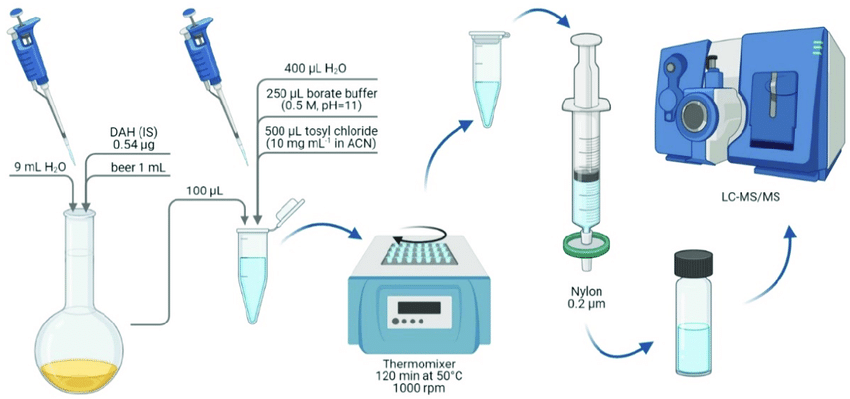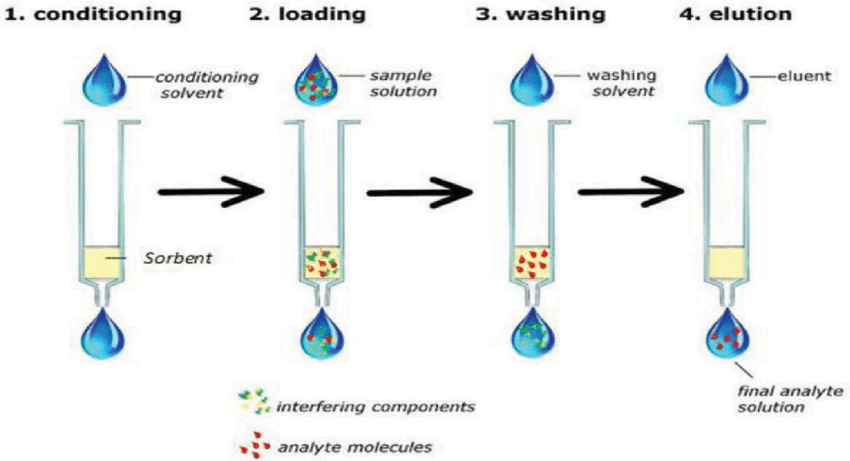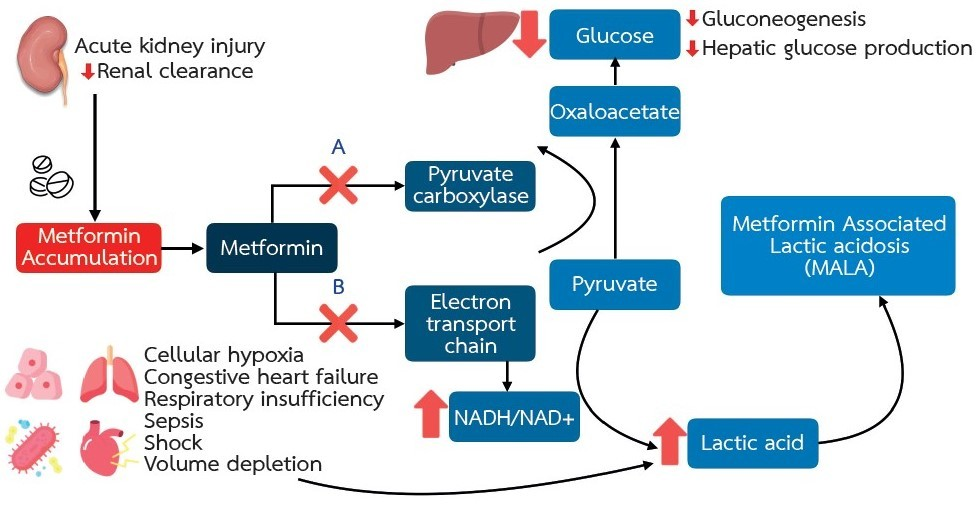Liquid chromatography-tandem mass spectrometry (LC MS-MS) has become a powerful tool for detecting organic acids in various biological samples. But good LC MS-MS results rely heavily on efficient methods to prepare the samples. Traditional methods can be slow and involve multiple steps, like protein removal and adding chemical groups (derivatization). These steps can introduce errors and reduce how accurate the final results are. Recent improvements in sample preparation offer exciting possibilities for better organic acid analysis in LC MS-MS workflows.
New Sample Preparation Techniques
Here are some key advancements in sample preparation for LC MS-MS organic acid analysis:
- Solid-Phase Extraction (SPE): This technique uses cartridges filled with special materials (sorbents) that grab hold of specific organic acids based on their chemical properties. Picking the right sorbent (e.g., C18, ion-exchange) allows for efficient extraction of the target molecules while removing unwanted substances from the sample matrix.
- Microextraction Techniques: Techniques like solid-phase microextraction (SPME) and stir bar sorptive extraction (SBSE) offer advantages like minimal solvent use and ease of automation. These methods employ coated fibers or stir bars to selectively adsorb organic acids from the sample matrix.
- Automated Systems: Integrating automated liquid handling systems with SPE or protein precipitation workflows significantly reduces processing time, minimizes human error, and improves the consistency of the analysis.
- Minimally Invasive Sample Preparation Techniques: Dried blood spots (DBS) are becoming a more popular option because they are less invasive than traditional blood collection. Specific DBS cards incorporate capture and enrichment materials to facilitate organic acid analysis via LC MS-MS.
Benefits for Accuracy and Reliability
These innovations contribute to improved accuracy and reliability of organic acid testing in several ways:
- Reduced Matrix Effects: Selective extraction techniques like SPE minimize interference from other substances in the sample that can block or enhance the signal in LC MS-MS analysis.
- Improved Sensitivity: Concentrating analytes through SPE or microextraction methods enhances sensitivity, allowing detection of organic acids present in low amounts.
- Enhanced Reproducibility: Automated systems minimize variability associated with manual processing steps, leading to more consistent and reliable results.
- Reduced Analysis Time: Faster extraction techniques like SPE and microextraction can significantly shorten sample preparation time, improving overall workflow efficiency.
Organic Acid in Urine LC MS-MS Analysis Kit
Commercially available LC MS-MS analysis kits for organic acids in urine often incorporate these innovative sample preparation techniques. These kits typically include pre-measured reagents, optimized protocols, and sometimes even pre-packed SPE cartridges, simplifying the workflow for researchers.
It's important to note that the choice of sample preparation technique depends on the specific analytes of interest, the complexity of the sample matrix, and desired analytical performance. Researchers should carefully evaluate these factors when selecting a sample preparation method for their LC MS-MS organic acid analysis.
For more information, please visit our website at https://www.lc-ms-ms.com/


